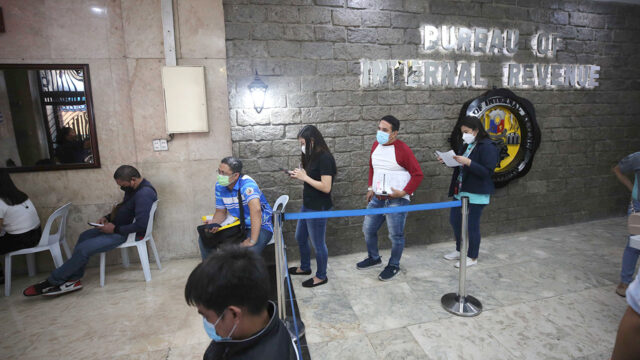THE Fiscal Incentives Review Board (FIRB) decision to raise the threshold of investment projects subject to its review to P15 billion from P1 billion previously has been pitched as an improvement to the ease of doing business (EoDB), by pushing more project approvals down to the investment promotion agency (IPA) level without delays imposed by a board review.
In an FIRB resolution dated Feb. 2 but released this week, the FIRB said the new threshold was adopted to facilitate EoDB by giving IPAs more leeway to approve projects falling under the threshold.
Under the resolution, all applications for tax incentives on projects involving investment capital of P15 billion or more are reviewable by the FIRB, with IPAs retaining approval authority for investments under the threshold.
Finance Secretary Ralph G. Recto, who chairs the FIRB, said in a statement that the new resolution will help improve competitiveness.
“IPAs play a vital role in attracting more productivity-enhancing investments, and we will continue to support them by acting fast on measures that will further promote ease of doing business and cultivate an investment-friendly climate,” Mr. Recto said.
The new resolution was also welcomed by the Philippine Economic Zone Authority (PEZA) and business chambers, who expect it to fast-track project approvals.
PEZA Director General Tereso O. Panga said that the new process will empower IPAs to evaluate and approve projects.
“This will definitely strengthen PEZA and the IPAs’ capacity to promote and facilitate investments given the faster gestation period in registering projects, particularly big-ticket investments,” Mr. Panga told BusinessWorld via Viber.
“With this power restored to the IPAs, this reform will not only enhance EoDB and investor trust and confidence in the Philippines, but also accelerate the implementation of projects that can generate the much needed jobs, exports and other economic opportunities for the country,” he added.
British Chamber of Commerce of the Philippines Executive Director Chris Nelson said by telephone that the new resolution is “ a very positive development.”
“It will allow those IPAs greater flexibility in what they can do, because obviously, now the amount is significantly higher,” Mr. Nelson said.
He said the new policy could further help attract more big-ticket investments by coupling it with measures that will ease doing business in the Philippines.
“This is one move along with others, right? Of course, we, along with many of the business groups, have advocated for removing or further reduction of the economic barriers, right? But, yes, this will help,” he said.
He added that there is a need for investors to see constant effort from the government to improve ease of doing business to compete with other countries in Southeast Asia.
The Philippine Chamber of Commerce and Industry also welcomed the new policy and gives IPAs more authority.
“This would mean more projects will have to be decided quickly at the IPA level without going through the approval of FIRB, which became the bottleneck for incentives,” PCCI President Enunina V. Mangio said in a statement on Monday.
“One of the bottlenecks we have in government is the ease of doing business. We need to streamline our processes and policies so we become an attractive investment destination,” she said, citing the need to catch up with ASEAN neighbors.
She added that the policy could also help encourage more investors to participate in big-ticket projects through public-private partnerships (PPP).
The FIRB said that the revised threshold aligns with the PPP Code of the Philippines, which states that PPP projects with a cost of P15 billion and higher are reviewable by the National Economic and Development Authority Board at the recommendation of the Investment Coordination Committee. — Justine Irish D. Tabile












